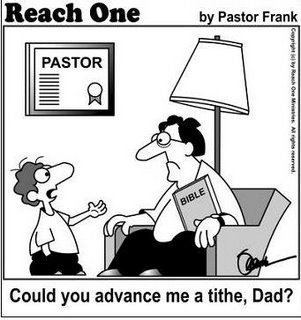During this period, nothing was said (directly) about tithing by Ignatius of Antioch, Polycarp of Smyrna, Quadratus, Tatian, Hippolytus, Kallistos, and Novatian. In the second century, Irenaeus apparently believed that Jesus abrogated tithing. Clement of Rome’s comments are innocuous and could have been based upon 1 Corinthians 16. There is no good reason to infer tithing from his writings. The Didache never discusses obligatory giving or tithing; it does state the principle of 1 Corinthians 9:14 that ministers have a right to live from the gospel. Justin Martyr’s description of contributions never mentions tithing, though it would have fit well into the context if Christians practiced tithing. Justin’s description of contributions offer support against the idea that tithing was being practiced in the churches during his time. In the third century, Clement of Alexandria concluded that Christians need to tithe. However, his support of keeping the Sabbatical Year and Year of Jubilees renders his view on issues in the law-gospel relationship suspect. Tertullian’s description of giving is incompatible with the conclusion that Christians must tithe. Origen specifically said that he did not tithe and Cyprian’s comments can be understood to mean that tithing was not practice in his time. The Didascalia Apostlorum explicitly said that Christians were not bound to give tithes or first fruits.
Resources and References:
The Constitutions of the Holy Apostles 2.4.25 (ANF 7:408); 7.29 (ANF 7:471). See also statements at 2.4.27; 2.4.34; 8.30–31.
See ANF 7:388.
Powers, “Historical Study of the Tithe,” 32.

3 comments:
Do you have a pdf file or other electronic version of your dissertation? I would like to read it. Would you please contact me at:
blewett 'at' stlawu.edu
"While the Constitutions contains the strongest statement about tithing in the Ante-Nicene period, this passage may be of a much later date than the rest of the document."
Hello David,
I'm curious, what are the reasons for believing this passage is a later addition?
Regards,
John
Thrilled to find your posts; will be working my way through over the next few days. With your permission, I may include links to your posts in my own on tithing. Quite refreshing to find writing on the subject that is referenced- been looking for the history of the tithe, and your information fits the bill.
Post a Comment